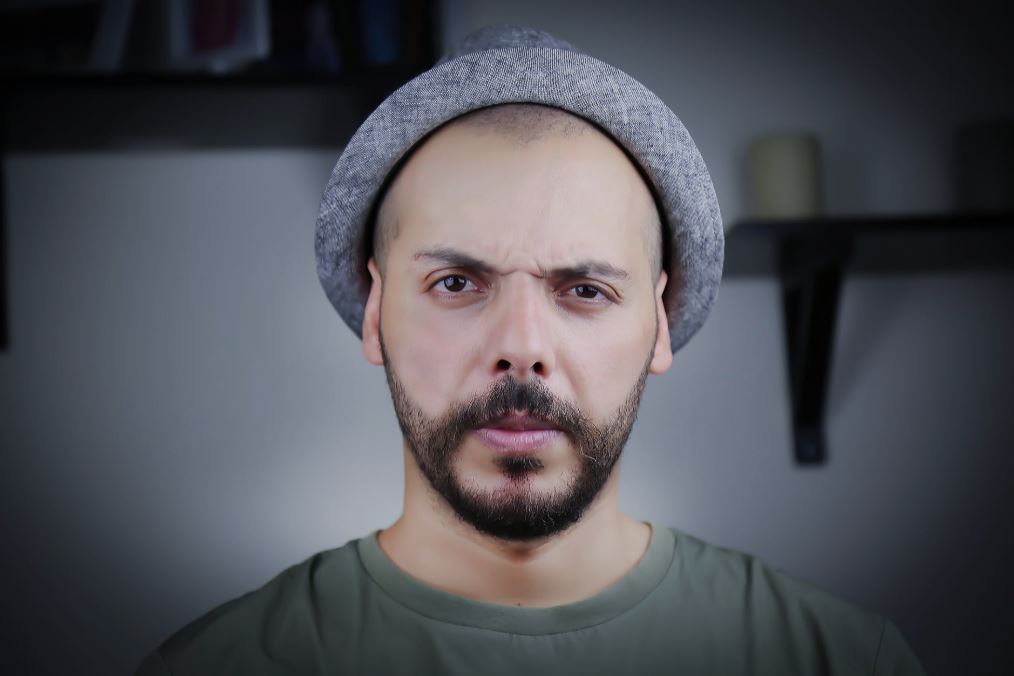
Androgenic alopecia, or male pattern baldness, accounts for hair loss in 50% of all men 50 and up. While many chalk this up to an unfortunate side effect of aging, this doesn’t have to be the case. Steps can be taken to help your body maintain your hairline. Consider the following strategies to counteract male pattern baldness.
Improve Your Diet
In male pattern baldness, hair tends to thin out around the crown and temples due to an excess of the chemical dihydrotestosterone. This hair loss can be exacerbated with a poor diet. When the body isn’t getting its essential vitamins and nutrients, fringe areas of the hair start to fade away. Diets that are low in iron can also trigger hair loss as a result of anemia. If you’re experiencing male-pattern baldness, take note of other symptoms such as dizziness, headaches, lethargy, and stomach pain that may indicate missing essential vitamins and minerals in your diet. Speaking with a dietician can help you identify what you need to add to your diet and better evaluate your symptoms.
Test for Hormone Imbalances
Hormone imbalances can also lead to hair loss. Men that have an underperforming thyroid, or hypothyroidism, may experiences hair loss all over their head as well as everywhere else on the body. Men can be tested for hormone imbalances to determine if this is the cause of their hair loss. While some may not consider hair loss to be a significant enough reason to treat hypothyroidism, it is important to realize that hypothyroidism can cause much worse than just hair loss. If you are losing hair in significant enough amounts that it may be a thyroid issue, take it as a sign to see a doctor and get treatment to prevent lasting damage to your overall health.
Seek Professional Baldness Treatment
Hair loss doesn’t need to be permanent. Men hoping to get their hair back should seek professional treatment. Experts with men’s hair restoration offer a variety of restoration options to bring hair back for good. While some professionals offer grafting and surgical treatments, others may offer medications or special follicle-stimulating shampoos. It’s important to consider a variety of treatments and professionals before making a decision on hair treatment so that you can find the one that best suits your needs, lifestyle, and budget.
Reduce Stress
The human body reacts to stress in a number of different ways, one of which is hair loss. Men that have exceedingly stressful careers, have overwhelming financial concerns, or are experiencing relationship challenges may find that as a result of all the stress, their hair has begun to fall out. Stress can trigger any of the following conditions that cause hair loss: alopecia areata, telogen effluvium, and trichotillomania. To treat this stress-induced hair loss, men essentially have to find better ways of coping with their anxiety. While reducing stress is easier said than done, men hoping to put a stop to this hair loss should begin by practicing stress-reducing exercises like mindfulness meditation and therapy. Not all stressful triggers can be controlled or prevented, but you can take steps to control how much it will affect your health.
Hair loss affects more men than you might realize. Don’t let this condition negatively affect your life and self esteem. Whether for your health or just for your appearance, it’s important to be aware of your options and potential causes regarding hair loss in order to know how best to respond.
Emma Sturgis
Recent Posts
- Castor Oil For Better Hair Growth: Is It Myth Or Fact?
- Exploring the Differences Between Sermorelin, Ipamorelin, Ibutamoren, GHRP2, and GHRP6: Understanding Their Role in Human Growth Hormone Regulation
- Unraveling the Mystery: Understanding the Causes and Prognosis of Ventricular Tachycardia Without Apparent Heart Disease
- Understanding Grandparents’ Rights in Oklahoma: Navigating Visitation and Legal Protections
- 10 Reasons to Consider Hypnotherapy for Your Health

